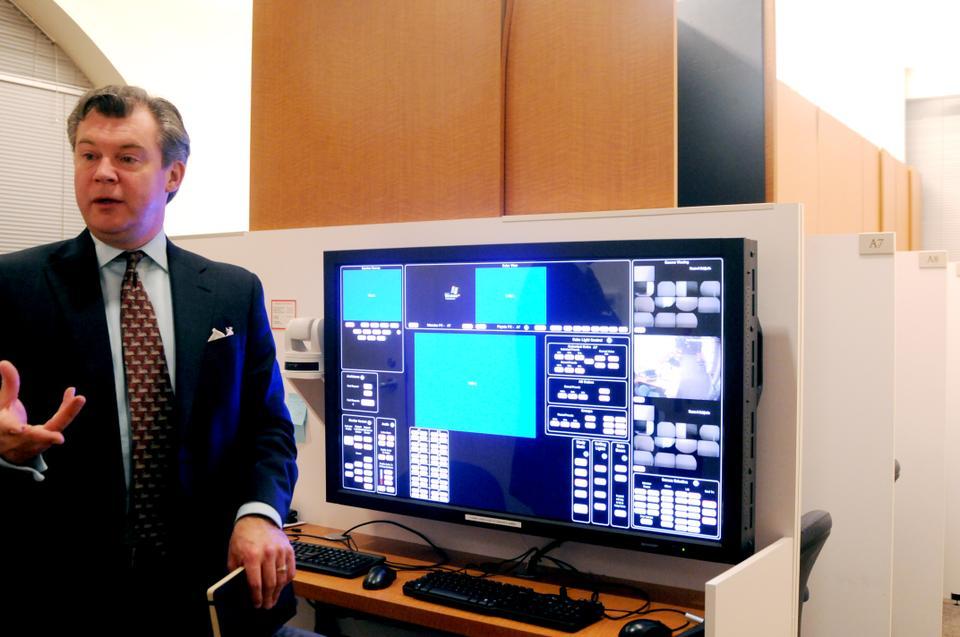
News
Harvard Quietly Resolves Anti-Palestinian Discrimination Complaint With Ed. Department

News
Following Dining Hall Crowds, Harvard College Won’t Say Whether It Tracked Wintersession Move-Ins

News
Harvard Outsources Program to Identify Descendants of Those Enslaved by University Affiliates, Lays Off Internal Staff

News
Harvard Medical School Cancels Class Session With Gazan Patients, Calling It One-Sided

News
Garber Privately Tells Faculty That Harvard Must Rethink Messaging After GOP Victory
Lab Analyzes Decision Making

The Harvard Decision Science Laboratory, home to cutting edge developments in the field of human decision making, supports research across campus.
“We’re designed to be a place that can investigate how factors other than rationality shape human judgment and decision making,” said Executive Director Mark D. W. Edington. “We have people who study how specific emotions—sadness, fear, anger, disgust—have specific and predictable impacts on how we perceive risk, on how we assess our options, how we choose and implement our chosen paths of action.”
The lab, housed at 124 Mount Auburn Street and affiliated with the Harvard Kennedy School, is an efficient, high-tech testing center. Thirty-six individual stations, each of which can be used by one test subject, allow for up to three experiments to go on at the same time.
Edington described the capabilities of one set of stations, designed to analyze physiological responses.
“We can measure your blood pressure, your skin conductance, your respiratory rate, your peripheral temperature—pretty much all of the core physiological functions,” he said.
The cutting-edge facility, opened in 2009, has numerous applications across disciplines.
Army Colonel Kevin M. Felix, a National Security Fellow at HKS, recently brought a group of 16 cadets to serve as study subjects for an analysis on how young military leaders make decisions.
Felix said the type of data gathered could help soldiers better understand their own decision-making processes,
That type of information can help prevent emotions or other compromising factors from interfering.
“If the individual knows him or herself better,” Felix said, “they can develop strategies that at least recognize and possibly change the outcomes of their decisions.”
He said he hopes that the research currently being done will be of use to the Army in the future.
“Can we make better decisions at a tactical level?” Felix asked. “On the battlefield? Or at a higher level in the Pentagon?”
These are the questions some researchers at the lab are trying to answer.
Studies at the lab, for instance, have found that a feeling of fear makes people risk averse, while a feeling of anger encourages risky behavior.
The Decision Science Laboratory has also investigated how people read emotion in others’ appearances.
Research done in the lab has shown that there is a spectrum of ability to recognize these emotions, according to Edington. People who are better at it, he said, are also better at relating to others.
Want to keep up with breaking news? Subscribe to our email newsletter.
